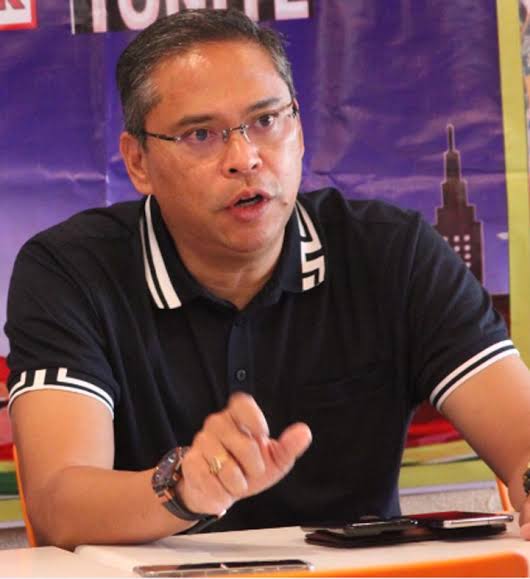The Philippine Health Insurance Corp. (PhilHealth) gets its money from millions of workers and employees nationwide, with its share of salaries and wages rising from 4% to 5% this year to fund what its CEO Emmanuel Ledesma Jr. claims are “initiated good changes in PhilHealth benefits,” but the increase, as it turns out would actually finance “bad changes” for PhilHealth.
Foremost among the “bad changes” are the transfer of P89.9 billion of PhilHealth money to the national government as ordered by Finance Secretary Ralph Recto through his Feb. 27 Department Circular 003-2024 (DC 003-2024.) This order compels government-owned and -controlled corporations (GOCCs) to turn over “excess funds.” The deficit-battered Marcos Jr. administration thus magically found a way to finance its 2024 “unprogrammed” budget. By stripping GOCCs of their annual cash haul, the geniuses and Rasputins solved the problem of financing vacuous “unprogrammed” expenditures that the bicameral committee inserted into the 2024 budget.
PhilHealth created the story that the P89.9 billion to be remitted to the national government was a “subsidy” that must be returned. It did not explain that millions of workers in both private and public sectors pay their monthly premiums to PhilHealth as health insurance. Next, it announced that the PhilHealth board approved the transfer. This questionable move can hardly pass legal muster since the P89.9 billion came from the members. For approving the remittance, PhilHealth chairman and Health Secretary Teodoro Herbosa, and DSWD Secretary Rex Gatchalian, Labor Secretary Bienvenido Laguesma, Budget Secretary Amenah Pangandaman as well as private sector directors must face the music.
The proposed P282-billion unprogrammed fund skyrocketed to P732 billion as Congress added P450 billion. This unprogrammed fund is being questioned before the Supreme Court (SC) and all hell would break loose once the Marcos Jr. administration’s move is declared unconstitutional and scratched from the annual budget proposal. Of the P89.9 billion earmarked for the national government, PhilHealth remitted the first tranche of P20 billion on May 10. This will be followed by P10 billion on Aug. 21, P30 billion on October 16 and P30 billion on May 26, 2025.
The worst that government can expect is to have its feet held to the fire as some wags are now spreading the word that the Maharlika Investment Corp. (MIC) would likely be a beneficiary of the manna from PhilHealth. Its president, Joel Consing, seeks to be paid P2.5 million monthly aside from other corporate perks, and he has been talking about setting up “agricultural estates” in 1.5 million-hectares of land to lure investors as well as building telco towers in many farms, to the discomfiture of agrarian reform beneficiaries (ARBs.) The billions shelled out by Landbank for MIC were not enough.
Clearly, Congress was liable for fiddling with the people’s money and this extra P450 billion would inevitably become the pork barrel that the SC had prohibited when Executive Secretary Lucas Bersamin was still sitting in the High Court, but which the Duterte and Marcos Jr. regularly flouted. When PhilHealth raised the monthly premium in January 2024, it provided the opportunity for both the Department of Finance (DOF) and Malacanang to channel “excess funds” to finance “unprogrammed” expenses.
PhilHealth itself has been stingy with expanding its benefits, and doctors have been howling that the corporation doesn’t help cancer or heart patients, with Dr. Tony Leachon claiming PhilHealth doesn’t cover blood, urine, stool test and x-ray for disease prevention and early detection. Indigents comprise 40%, he adds, and they’re supposed to benefit most from sin taxes on cigarettes, liquor, beverages and sugary drinks. “How can they if government grabs PhilHealth’s P90 billion?” Leachon says. Precious little has been added for dialysis subsidy, from P2,600 to P4,000 monthly. Economist JC Punongbayan tags the PhilHealth fund transfer as “extortion” and another economist said stripping PhilHealth would deny wage earners of the benefits they deserve for shelling out between P500 and P1,000 monthly.
The rape of the national budget is a calendar story that happens monthly and becomes worse before an election year. GOCCs are expected to provide funds to the national government promptly but the issue is whether mutual funds, like the Social Security System (SSS), the Government Service Insurance System (GSIS) and PhilHealth, which is a health insurance corporation, could be considered GOCCs. The three entities are funded by their members and their charters clearly cannot be amended by a mere circular from Recto. So, the timeline is clear: Ledesma raises the monthly PhilHealth premium to 5% in January 2024, Recto issues DC 003-2024 to compel the transfer of “excess funds” from GOCCs, and suddenly, the problem of funding “unprogrammed” items in the 2024 budget is solved.




